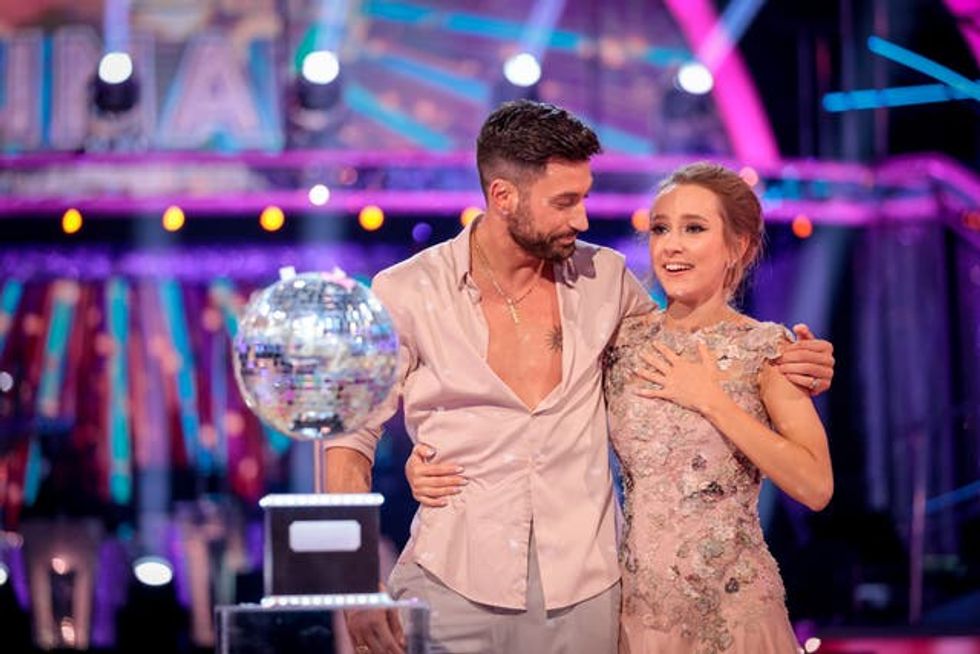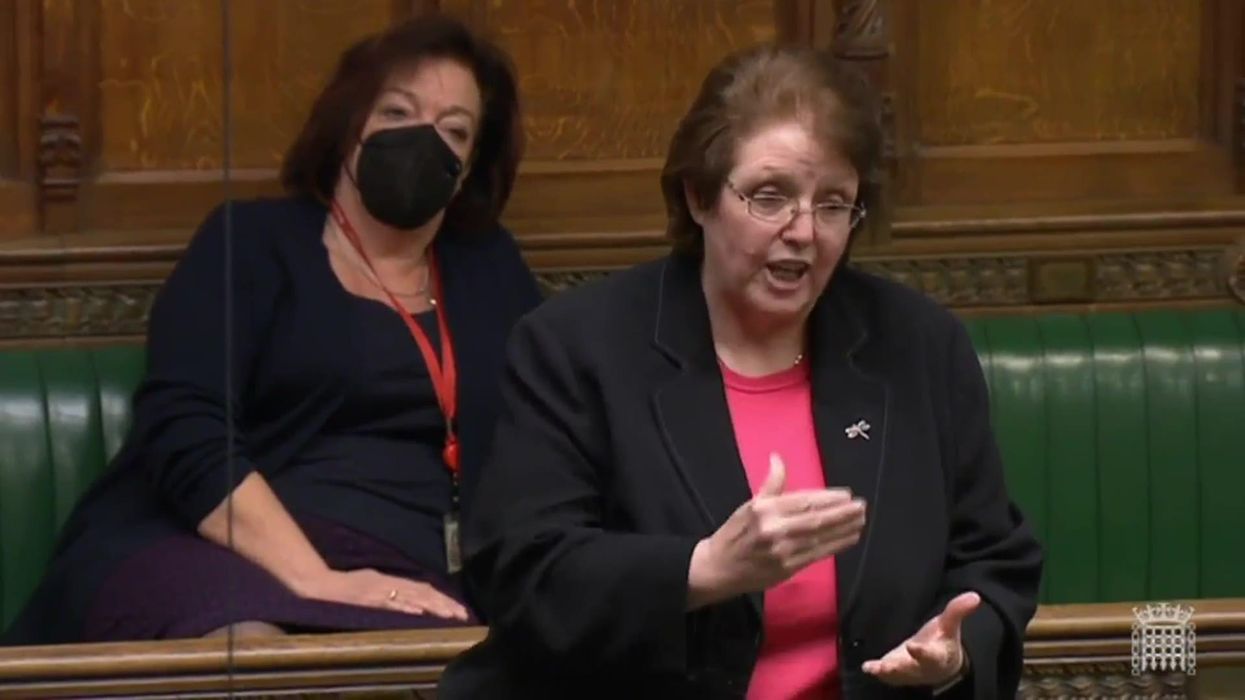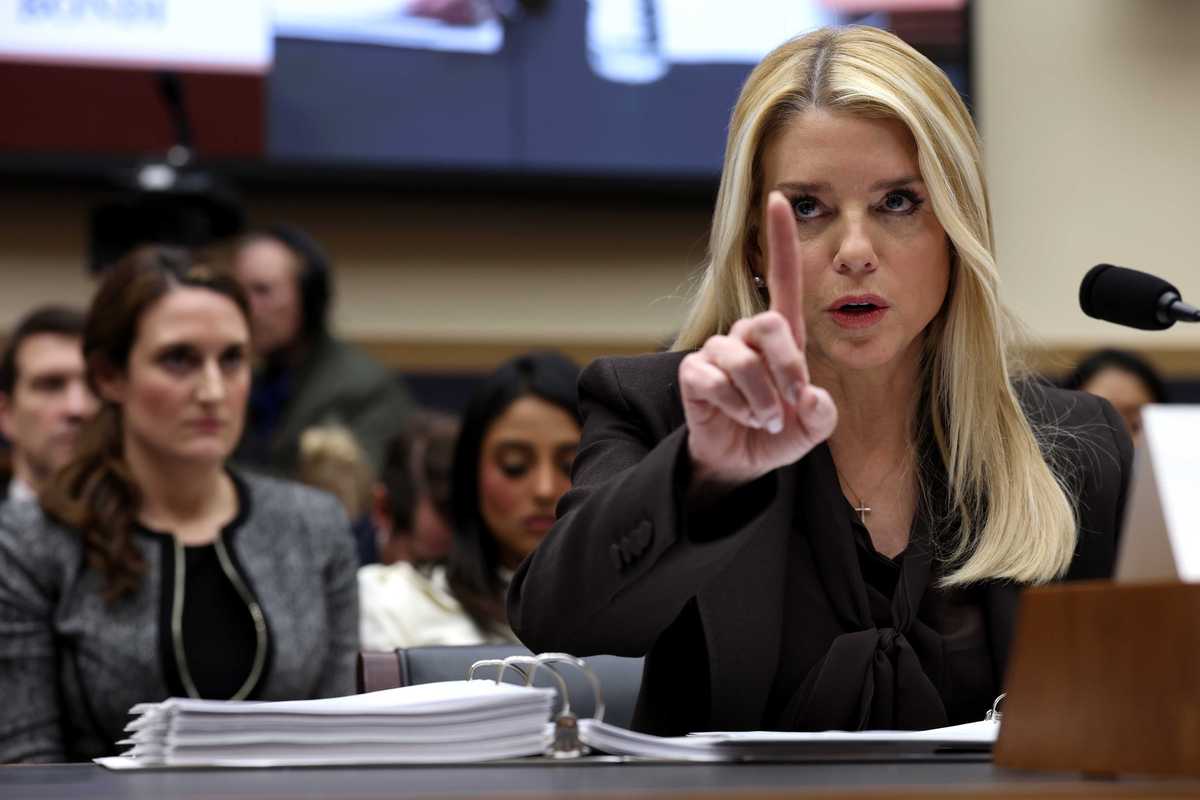Politics
Related video: MP thanks Strictly Come Dancing's deaf contestant for raising awareness
ParliamentLive.TV
The House of Lords saw the first live use of British Sign Language (BSL) interpretation on Friday, as peers backed a Bill giving the language legal recognition across Great Britain.
Lord McFall of Alcluith, the Speaker in the House of Lords, marked the "landmark moment" for BSL recognition in the chamber ahead of the Bill's second reading, signing "thank you" as part of his introduction.
Addressing peers, Lord McFall said: "“I would like to point out that a British Sign Language interpretation of proceedings is available to watch on parliamentlive.tv.
“I am delighted to mark this first occasion of the live use of BSL interpretation in the House of Lords.”
As part of the discussion of the Bill which will give legal status in England, Wales and Scotland, peers also heard that the government would soon consult on plans for a GCSE in the language - which is used by the UK's Deaf community.
Conservative peer Lord Holmes of Richmond, who is sponsoring the Bill, opened the debate by saying: “The purpose of the Bill, in many ways, incredibly straightforward. Simply this: to include BSL signers.
Sign up to our free Indy100 weekly newsletter

“One example to make the point: imagine you are a BSL signer and you go to a hospital or a GP appointment. The news might not be good, it may be, but whether good or bad, it’s certainly personal.
“Perhaps some of the most personal interaction you may have with the state. In no circumstances it seems wholly appropriate that a BSL signer should not have to rely on a spouse, a parent, a child, a sibling to enable that encounter to be accessible and inclusive."
Meanwhile crossbench peer Baroness Grey-Thompson described the live interpretation of the Lords debate as “truly a landmark moment”.
Paying tribute to Strictly Come Dancing for its part in raising awareness about BSL, Lady Grey-Thompson added: “What we have seen in recent months is the power of television. The power of Strictly to educate is possibly more than we ever thought it might be.
“Rose Ayling-Ellis was amazing, and it is wonderful to hear about the increase in people wanting to learn sign language.
“Over the years I have heard many times about teaching BSL in schools or even having a GCSE - that would show true commitment.”
Plans for a GCSE were also mentioned by Liberal Democrat Baroness Thomas of Winchester, who urged the Government to reveal how advanced proposals for the qualification were.
Responding on behalf of the government, the work and pensions minister Baroness Stedman-Scott said: “The government is committed to supporting all people with a disability including deaf people to lead fulfilled, independent lives.
“For deaf people this must include the ability to communicate with others through BSL or other forms of deaf communication.
“BSL is a rich vibrant language in its own right, that helps to build a sense of community for many deaf BSL signers.”
On the GCSE, she added: “I can confirm that DfE [the Department for Education] is working closely with subject experts to develop draft subject content for a BSL GSCE.
“The DfE is also working with Ofqual to ensure the subject content can be assessed appropriately and the department is aiming to consult publicly on the draft subject content later in 2022.”
The Bill, which was first introduced as a Private Members' Bill by Labour MP Rosie Cooper, passed through all stages of the Commons last week.
After peers backed the Bill at second reading, it will now move to its committee stage as the next part of the legislative process.
Have your say in our news democracy. Click the upvote icon at the top of the page to help raise this article through the indy100 rankings.
Top 100
The Conversation (0)














